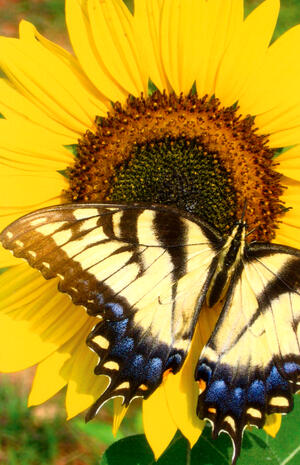Many of the benefits of cover crops are known and their use is increasing, but more can be done to evaluate and improve their performance and adoption. In this session, Sjoerd Duiker (Penn State University) discusses the possibility of adoption without government regulation or incentives. Dean Hively (USGS) reviews the use of remote sensing to map cover crop performance, trends toward increasing wintertime ground cover and watershed-scale performance.
Evaluating and Improving Cover Crop Performance and Adoption - Hively
This session was part of Cover Crops for Soil Health, a three-day professional development workshop hosted by Northeast SARE and Delaware State University in March 2016. All session recordings are available online.
Find more practical information about cover crops in the Cover Crops Topic Room.
Sjoerd Duiker is an Associate Professor of Soil Management and Applied Soil Physics. His specialization focuses on the effects of soil management practices on soil physical properties and processes. This includes the effect of no-tillage and tillage on soil physical properties, how soil compaction affects soil and crops, what effect crop rotation plays in maintaining soil quality, and the benefits and challenges of cover crops. The use of a systems approach to no-tillage, soil compaction and crop rotations is a crucial element in all of his work. Research takes place on Penn States research farms as well as in collaboration with farmers and field agronomists in Pennsylvania.
Dean Hively is a Research Physical Scientist with the USGS Eastern Geographic Science Center, where he leads a task titled "Understanding Agricultural Conservation Practices." He is posted to the USDA Agricultural Research Service, Hydrology and Remote Sensing Laboratory where his research uses a combination of satellite and proximal multispectral and hyperspectral sensors, along with on-farm sampling and access to farm management records, to map and evaluate the plant biomass, nitrogen content, and vegetative ground cover associated with winter cover cropped fields. In addition, Dean is the lead for maintaining the USGS status as a Conservation Cooperator with the USDA, and coordinates the annual acquisition of privacy protected conservation data from USDA agencies and the production of aggregated data sets for public release. This information informs adaptive management of conservation resources by Chesapeake Bay Program Partners, and links the agricultural landscape to water quality outcomes by documenting the implementation and performance of conservation practices at the watershed scale.
Complete session recordings
- Overview of Cover Crop Developments Nationwide
- Cover Crop Planting Dates and Seeding Rates
- Cover Crop Cocktails
- Establishment Methods for Cover Crops and Cash Crops in Grain Production Systems
- Fitting Cover Crops in Vegetable Rotations
- Managing Cover Crops for Ecosystem Services in Vegetable Systems
- Cover Crops: Current and Future Directions
- Evaluating and Improving Cover Crop Performance and Adoption
- Cover Crops as Part of an Overall Nutrient Management System
- Managing Soil Health With Cover Crops: Beyond the Basics
- Cover Crop Field Tour Recap and Debrief
- Farmer Panel on Cover Crops
